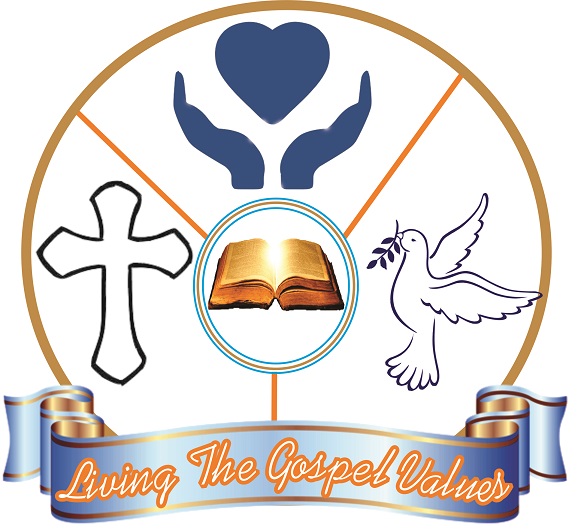Reflection on Today's Readings, 30th Sunday in Ordinary Time Year A, October 25th, 2020
Texts: Ex. 22:21-27; Ps. 2-4.47.51; 1Thess. 1:5c-10; Matt. 22:34-40
Jesus Christ, in today's gospel reading, speaks of charity as the greatest commandment in the law. Jesus invites us once more to reflect on charity. According to Penny Catechism "charity is the supernatural gift of God by which we love God above all things, and our neighbours as ourselves for God's sake."
Jesus Christ calls us to charity when he says, "You shall love the Lord your God with all your heart, with all your soul, and with all your mind. This is the great and first commandment. And a second like it, you shall love your neighbour as yourself." Jesus Christ adds thus: "On these two commandments depend all the law and the prophets." This means that charity is the way of the Lord and also the revelation of God's will. Here, Commandment is about ways of life while God's will means his plan, it is about Divine design.
Today's first reading tells us what the love of neighbour means. We are not to wrong or oppress strangers; we are not to afflict any widow or orphan; we are to defend the defenseless. The love of neighbour calls us to help the needy and the poor; we are to desist from any action that can worsen another person's condition. Hence, it is said, "If you lend money to any of my people with you who is poor, you shall not be to him as a creditor and you shall not exact interest from him. If ever you take your neighbour's garment in pledge, you shall restore it to him before the sun goes down; for that is his only covering, it is his mantle for his body; in what else shall he sleep?"
God warns us that he will avenge any maltreatment of strangers, orphans, widows and the poor. We are to desist from maltreating of them to avoid God's displeasure.
The love of neighbour also entails living for their sake. St. Paul and his co-workers are examples here. St. Paul says, "You know what kind of men we proved to be among you for your sake." He commends the Thessalonians for imitating them and also informs them how their life has influenced other believers. He says, "And you became imitators of us and of the Lord, for you received the word in much affliction, with joy inspired by the Holy Spirit; so that you became an example to other believers in Macedonia and Achaia." If we love our neighbours, we will live exemplary life; life that inspires others to imitate us and the Lord. Life worthy of emulation is a sign of love of one's neighbours.
We may now ask: What does it mean to love God? We love God when we become imitators of him by walking in his ways. Our love of God manifests in doing his will. Penny Catechism says, "We show that we love God by keeping his commandments; for Christ says, 'If you love me, keep my commandments'." It will be a false claim to say we love God when we do not keep his commandments. St. John says, "Anyone who does keep his word, in such a one God's love truly reaches its perfection" (1John 2:5). The love of God in us always prompts us to obey him and keep his commandments; the love makes it joyful and easy to keep the Commandments.
The love of one's neighbour is also a manifestation of our love of God. This is having good will towards all men, both friends and foes. We should not allow hatred or bitterness to govern our behaviours and actions towards others. St. John says, "If anyone is well-off in worldly possessions and sees his brother in need but closes his heart to him, how can the love of God be remaining in him?" (1John 3:17).
Our worship of God is also the fruits of God's love in us. The love of God in us attracts us to worship him. Though it is possible to worship God because of fear, what one needs or any other reason, but those who love God cannot do without worshipping him.
The love of God also manifests in service. If we love God, we will be ready to serve him, we will be ready to work for him.
Our love of God also manifests in sacrifice. If we love God, we will be able to endure anything for his sake. The people of Thessalonia received the word in much affliction; they paid the price for accepting the word.
Dear friends, it is now time to rekindle our love of God our neighbours.
God our Father, we pray you to pour into our hearts your love that we might follow your ways and also love our neighbours as you love us. Amen.
Rev. Fr. Andrew Olowomuke








0 Comments